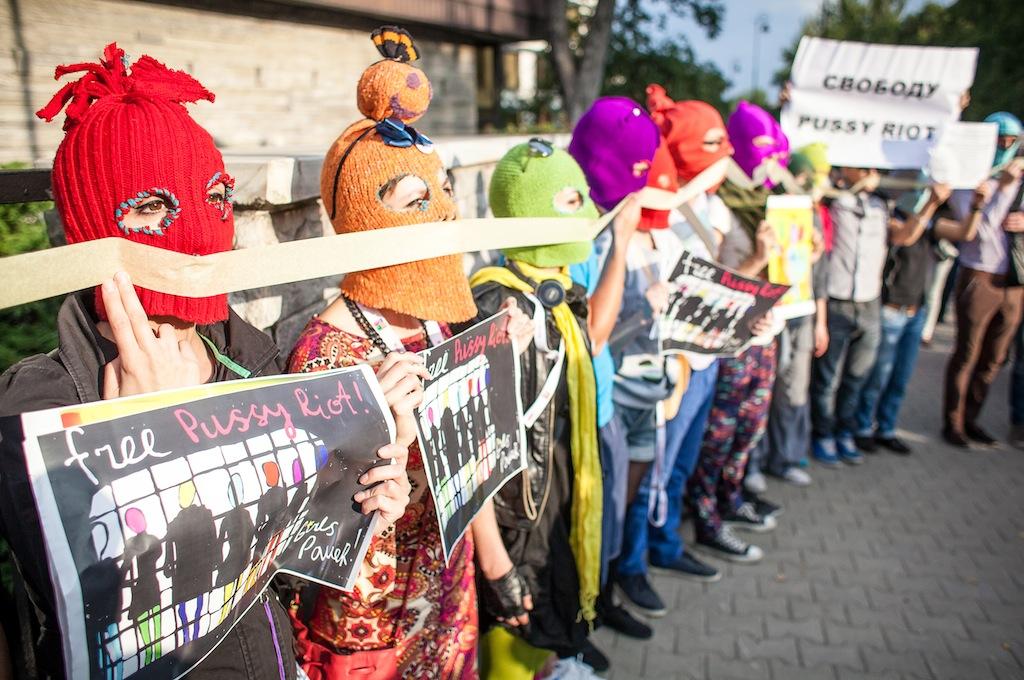The Pussy Riot is not over
Supporters of the Russian punk band ‘Pussy Riot’ wear masks and hold placards demanding their freedom as they protest in front of of the Russian embassy in Warsaw on August 17, 2012.
Pussy Riot is not in prison. Three of its members are.
On Friday, Nadezhda Tolokonnikova, Maria Alyokhina and Yekaterina Samutsevich were sentenced to two years in a penal colony for hooliganism motivated by religious hate. (They protested in a church.) But the case against the anti-Putin performance art group is not over.
Watch the video of their "punk prayer," and you'll notice at least five demonstrators rocking out in Moscow’s Orthodox Church of Christ the Savior. So why were only three members on trial?
It's unclear if police know the identities of the other participants, who all wore hoods or face masks, but authorities are actively searching for them. “The criminal case is ongoing and a search is underway,” an Interior Ministry spokesperson told RIA Novosti.
Pussy Riot spokesperson Piotr Verzilov told GlobalPost on Aug. 11 that the protest group has an all-female “creative team” of about 20 activists. It's likely, though unconfirmed, that this anonymous team released "Putin Lights Up the Fires," a new Pussy Riot single.
After the judge told the three women their actions constituted "a grave violation of public order" and put them in jail, the western world cried foul. Celebrities and the western media widely supported Pussy Riot and denounced and Putin's iron-fisted rights abuses.
But now that the main event is over, will the media spotlight illuminate the other serious trials of Putin's opposition? The average news consumer has yet to hear about the human rights lawyer Yevgeny Arkhipov and the 11 activists he's currently defending.
Let's say the two anonymous members of Pussy Riot are arrested and put on trial. And let's say, like their predecessors, their trial is Orwellian and their punishment excessive and disproportionate. Will Madonna and Sting profess solidarity now that the media afterglow is fading?
The Atlantic's Joshua Foust doesn't think so:
"Rather than the Pussy Riot trial catalyzing a broader Western awareness of Russian authoritarian backsliding or even a popular movement to pressure Moscow to loosen its restrictions, it seems to have inspired little more in the West than outrage about how sad it is for some punk rockers to go to jail for a silly little church concert."
Let's hope he's wrong.
We want to hear your feedback so we can keep improving our website, theworld.org. Please fill out this quick survey and let us know your thoughts (your answers will be anonymous). Thanks for your time!
